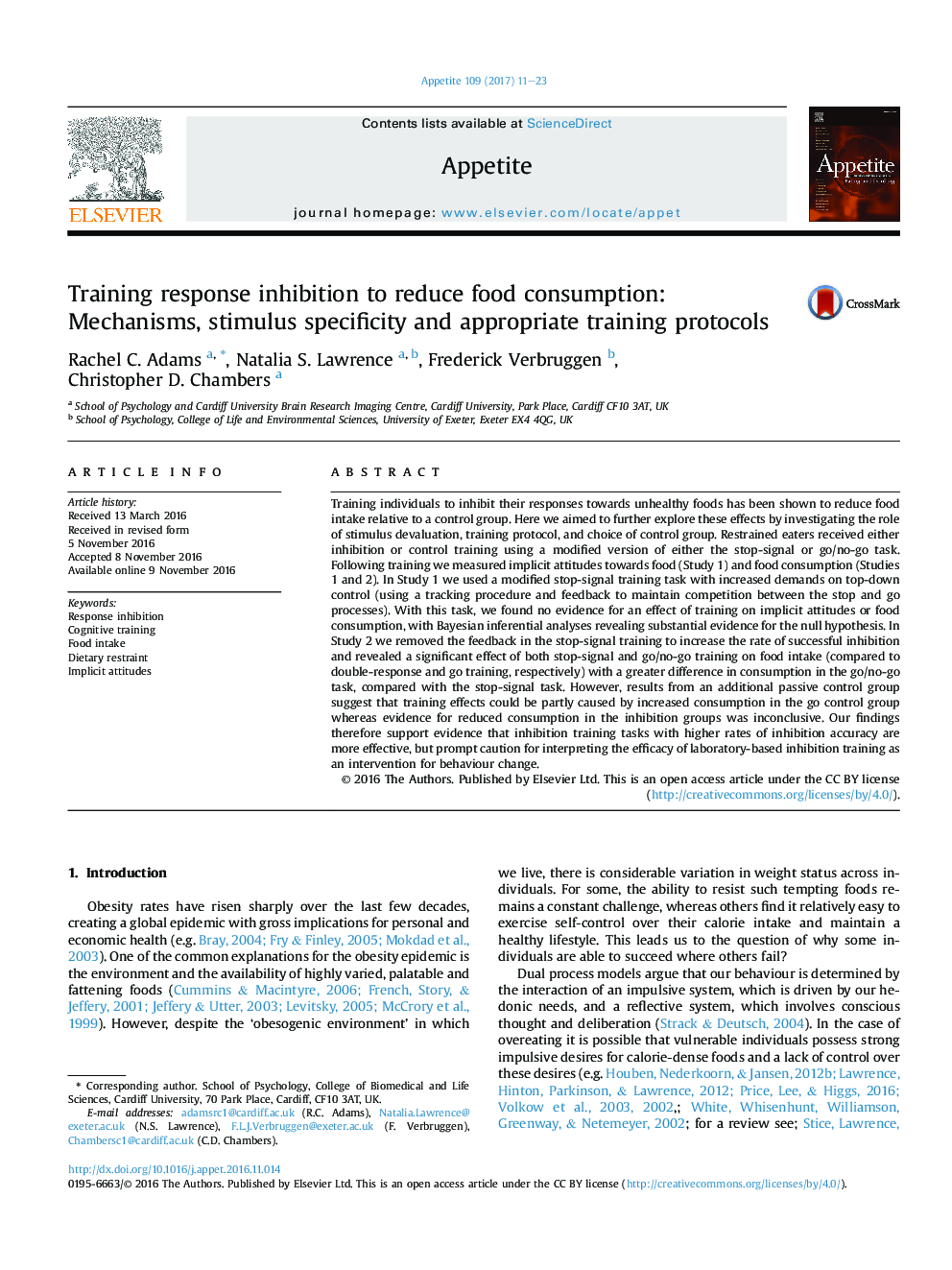| کد مقاله | کد نشریه | سال انتشار | مقاله انگلیسی | نسخه تمام متن |
|---|---|---|---|---|
| 5044357 | 1475371 | 2017 | 13 صفحه PDF | دانلود رایگان |
Training individuals to inhibit their responses towards unhealthy foods has been shown to reduce food intake relative to a control group. Here we aimed to further explore these effects by investigating the role of stimulus devaluation, training protocol, and choice of control group. Restrained eaters received either inhibition or control training using a modified version of either the stop-signal or go/no-go task. Following training we measured implicit attitudes towards food (Study 1) and food consumption (Studies 1 and 2). In Study 1 we used a modified stop-signal training task with increased demands on top-down control (using a tracking procedure and feedback to maintain competition between the stop and go processes). With this task, we found no evidence for an effect of training on implicit attitudes or food consumption, with Bayesian inferential analyses revealing substantial evidence for the null hypothesis. In Study 2 we removed the feedback in the stop-signal training to increase the rate of successful inhibition and revealed a significant effect of both stop-signal and go/no-go training on food intake (compared to double-response and go training, respectively) with a greater difference in consumption in the go/no-go task, compared with the stop-signal task. However, results from an additional passive control group suggest that training effects could be partly caused by increased consumption in the go control group whereas evidence for reduced consumption in the inhibition groups was inconclusive. Our findings therefore support evidence that inhibition training tasks with higher rates of inhibition accuracy are more effective, but prompt caution for interpreting the efficacy of laboratory-based inhibition training as an intervention for behaviour change.
Journal: Appetite - Volume 109, 1 February 2017, Pages 11-23
